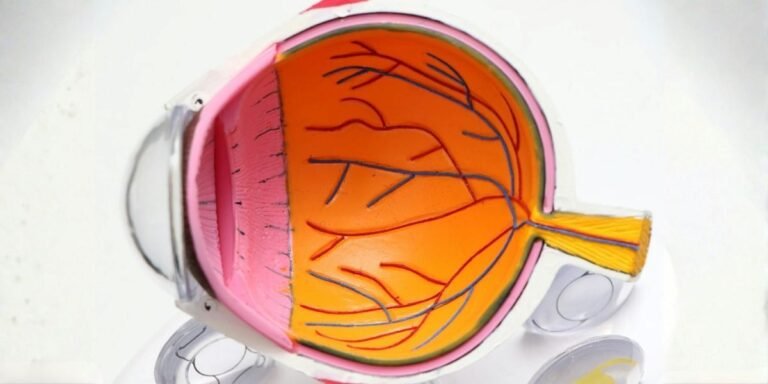The ever-intense quest for innovation and patient care improvement keeps the healthcare landscape changing. With technology developing at an unprecedented rate, new opportunities are transforming how healthcare is received and experienced.
This article examines the fascinating possibilities of these cutting-edge technologies and emphasizes how they can revolutionize several facets of patient care. It analyzes the major developments that will influence monitoring, patient involvement, diagnosis and treatment, and medical supplies delivery in the future. Let us look at how these developments open the door to a tailored, effective, and patient-centric healthcare system.
Transforming Diagnostics and Treatment with Futuristic Advancements
The emergence of innovative technologies is driving a significant transformation in the healthcare landscape. Let us explore three major areas where developments influence how patients will be treated and cared for.
Artificial Intelligence in Healthcare
AI has the potential to transform several healthcare delivery-related areas completely. AI systems are being trained to analyze medical images, including CT, MRI, and X-ray scans, accurately. This can help medical professionals find anomalies, validate diagnoses, and recommend possible courses of action.
AI-powered chatbots can give patients a quick and easy way to evaluate symptoms, get basic health information, and make appointments. This can shorten wait times, enhance patient self-management, and offer basic direction.
By analyzing enormous datasets of genetic and patient data, artificial intelligence (AI) has the potential to transform personalized medicine completely. This may open the door to the creation of specialized medication regimens, treatment plans, and even preventative measures.
Precision Medicine and Personalized Care
Precision medicine—a more individualized approach—is gradually replacing the idea of “one-size-fits-all” healthcare. Healthcare providers can create treatment regimens that are more likely to be successful for each patient by looking at their unique genetic makeup and medical history. This improves outcomes and lowers side effects.
Precision medicine promotes a change in healthcare towards preventive care by identifying people who are more susceptible to certain diseases due to genetic and lifestyle factors. This makes it possible to prevent future health problems and to intervene early.
Precision medicine empowers patients by promoting collaborative decision-making between patients and medical professionals. Empowering patients to engage actively in their healthcare journey entails giving them clear and accessible information about their health data and treatment options.
Minimally Invasive and Robotic Surgery
Surgical techniques are continually improving to become more accurate and minimally invasive, which helps patients recover more quickly and has better results. Compared to traditional surgery, minimally invasive procedures cause less tissue damage, less pain, and a quicker recovery time because they use smaller incisions and specialized instruments.
Surgeons can perform intricate procedures with more control, dexterity, and precision thanks to robotically assisted surgical systems. This may result in fewer complications following surgery, better surgical outcomes, and shorter hospital stays.
Thanks to telepresence surgery, surgeons can use robotic systems to perform intricate procedures remotely. Access to specialized surgical care could be made easier with the help of this technology, especially in remote areas.
Revolutionizing Patient Engagement and Monitoring
The future of patient care lies not only in advances in diagnosis and treatment but also in transforming patient engagement and monitoring. The future of patient care lies not only in advances in diagnosis and treatment but also in transforming patient engagement and monitoring. This section examines three major areas that are changing how patients use their health data and interact with the healthcare system.
Telehealth and Remote Care
The delivery of healthcare through telecommunications technology, or telehealth, is rapidly changing patient access and engagement. During telehealth consultations, patients can use video conferencing to establish a remote connection with medical professionals. Geographical barriers are removed, wait times are shortened, and convenient access to care is made possible—especially for those living in remote areas or with mobility issues.
Patients with chronic illnesses like diabetes or heart failure can be remotely monitored with the use of telehealth technology. This makes it possible to continuously monitor vital signs, medication compliance, and symptom management, which promotes better disease control and early intervention.
Telehealth provides a convenient and easily accessible platform for mental health consultations and therapy sessions. It can also be a teaching tool, giving patients simple access to trustworthy health resources and information.
Wearable Devices and Biosensors
Vital signs, including blood pressure, oxygen saturation, and heart rate, can be tracked by wearable technology like fitness trackers and smartwatches. Additionally, they can monitor sleep and activity patterns, which gives them useful information for individualized lifestyle recommendations and health assessments.
Biosensors can be implanted in the body to monitor particular health metrics or integrated into wearable technology continuously. This makes it possible to collect data in real-time, allowing medical professionals to monitor trends and spot potential health problems early on.
Wearables and biosensors can gather data to customize treatment regimens, modify drug dosages, and spot possible health risks before symptoms appear. This enables early intervention and may stop problems or the spread of the illness.
Big Data Analytics and Predictive Healthcare
Through big data analytics, the vast amount of data generated from various sources, such as wearables, biosensors, and patient medical records, is revolutionizing healthcare. Healthcare workers can find patterns and trends linked to specific diseases by examining sizable datasets. This makes it possible to predict a person’s potential health risks, which permits early intervention and preventative measures.
Healthcare systems can more efficiently allocate resources and customize interventions with patient data analysis. This may result in better resource management, the creation of focused preventative initiatives, and enhanced population health outcomes.
By using big data analytics, people who are more susceptible to certain diseases can be identified based on various factors. This makes it possible to implement preventative measures, like lifestyle changes or early screening initiatives, which may completely stop illness from starting.
Conclusion
The transformative power of innovation ushers in an era full of possibilities for healthcare. These developments, which range from AI-powered diagnostics to personalized medicine, big data analytics, and remote patient monitoring, can significantly improve patient outcomes and healthcare delivery and give people more control over their health.
To close the digital divide and guarantee that everyone gains from these revolutionary discoveries, it is imperative to recognize the ethical issues surrounding data privacy and to provide fair access to these innovations. To guarantee that these innovations realize their full potential and transform healthcare for the good of all, ongoing research and development, responsible application, and ethical considerations are crucial.
Published by: Khy Talara









